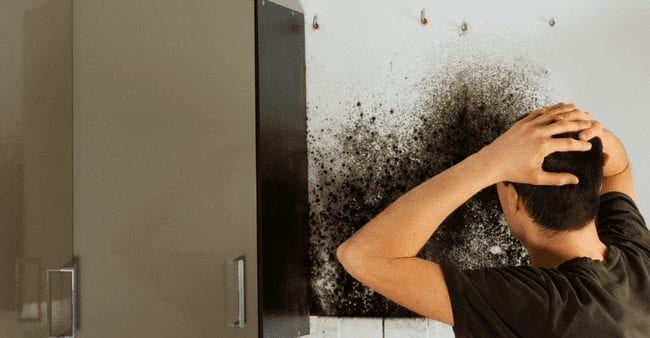Overview To Water Leakage Discovery In The House
Get QuoteOn this page in the next paragraph you can get more good ideas on the subject of Finding hidden leaks.

Early detection of dripping water lines can reduce a prospective calamity. Some little water leaks might not be noticeable.
1. Take A Look At the Water Meter
Every home has a water meter. Examining it is a surefire manner in which assists you discover leakages. For starters, turn off all the water resources. Guarantee no one will flush, use the tap, shower, run the washing machine or dish washer. From there, most likely to the meter and watch if it will change. Considering that nobody is using it, there must be no motions. That indicates a fast-moving leak if it relocates. Likewise, if you detect no changes, wait a hr or two as well as check back once again. This suggests you might have a slow-moving leak that can also be below ground.
2. Examine Water Usage
If you find unexpected modifications, despite your consumption being the same, it means that you have leakages in your plumbing system. An abrupt spike in your expense indicates a fast-moving leak.
On the other hand, a constant boost monthly, despite the exact same routines, reveals you have a slow leakage that's likewise gradually intensifying. Call a plumber to extensively examine your residential property, particularly if you really feel a cozy area on your flooring with piping below.
3. Do a Food Coloring Examination
30% comes from bathrooms when it comes to water usage. Examination to see if they are running effectively. Decrease flecks of food color in the tank and wait 10 minutes. If the color somehow infiltrates your bowl throughout that time without flushing, there's a leak in between the storage tank and dish.
4. Asses Outside Lines
Don't neglect to inspect your exterior water lines as well. Test faucets by affixing a garden hose. Must water seep out of the connection, you have a loosened rubber gasket. Replace this and guarantee all links are limited. If you've got a lawn sprinkler, it will assist get it properly examined and kept yearly. One small leak can throw away tons of water as well as increase your water expense.
5. Assess the situation and check
Property owners should make it a behavior to inspect under the sink counters as well as also inside closets for any type of bad odor or mold development. These 2 red flags show a leakage so timely attention is called for. Doing regular inspections, even bi-annually, can conserve you from a major issue.
Inspect for discolorations and also deteriorating as a lot of pipes as well as appliances have a life span. If you suspect dripping water lines in your plumbing system, don't wait for it to intensify.
Early detection of dripping water lines can mitigate a prospective catastrophe. Some tiny water leaks might not be visible. Checking it is a guaranteed way that assists you discover leaks. One tiny leak can lose heaps of water and also increase your water costs.
If you suspect dripping water lines in your plumbing system, don't wait for it to intensify.
5 Signs that Your Home Has a Hidden Leak
Your water bill is unusually high without explanation
Generally, your water bill tends to stay consistent throughout the year as long as the same number of people live in your household year round. The bill might be higher during certain times of the year, such as summer, when your lawn may require more watering than it does in cooler months. However, if you notice a rise in your water bill that you can’t explain, it’s an indicator that there’s a hidden leak somewhere in your home.
You hear running water
One of the biggest signs that you have a water leak is the sound of rushing water when no plumbing fixtures are on and when no water-using appliances are running. If you hear running water in your walls when no water is being used anywhere in your home, locate your home’s main water shut-off valve, shut off your water supply, and contact a plumber at once.
Your home smells musty
Hidden leaks often occur in dark spaces, such as behind walls or under carpeting. Incidentally, darkness and moisture can create an ideal breeding environment for mold or mildew. If you start to smell mildew or the scent of rotting wood or stagnant water around your home, it’s a fair bet that a leak is the culprit.
You find wet spots around your home
The wet spots usually show up as moist areas in your carpeting. If your home has a basement level, puddles on the floor could indicate a slab leak. Outside, unexplainable puddles or lush, green patches in your yard often mean that there’s a leak in your sewer line or main water line.
You have stains, bubbles, or condensation on your walls/ceiling
Stains or condensation on your walls or ceiling are both major signs of a hidden leak. Also, drywall (AKA. sheetrock) is very absorbent, and as it takes on more water from a leak behind a wall, it will start to bubble, swell, or warp. If you see this happening in your home, don’t wait to contact a plumber before the water damage spreads.
https://www.ezflowplumbingaz.com/blog/2019/june/5-signs-that-your-home-has-a-hidden-leak/

I'm certainly very intrigued by Leaking water lines and I hope you enjoyed reading the entire page. Don't hesitate to take a moment to distribute this post if you liked it. We value reading our article about Hacks to detect leaks.